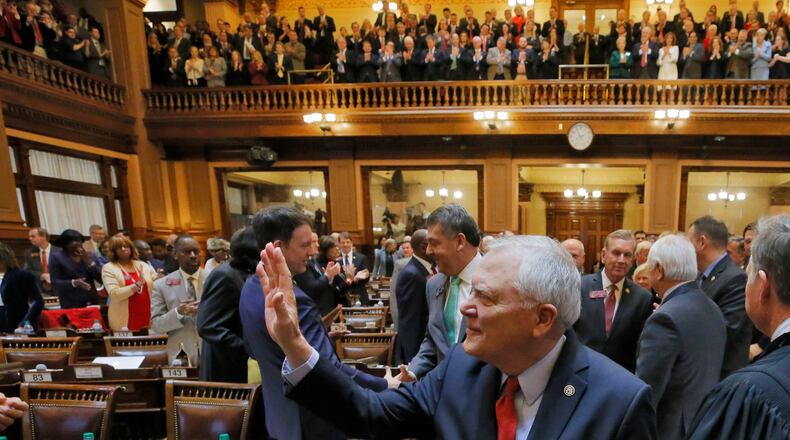On the whole, Nathan Deal has been a good governor.
Admittedly, those are words that I did not think I’d write seven and a half years ago, in large part because of the ethical baggage that Deal brought to Atlanta from his time in Congress. Those concerns were real — indeed, the biggest black mark of Deal’s tenure as governor remains his decision to push out employees of the state ethics commission who had dared to try to investigate him.
That was a big mistake, but he got away with that mistake and moved on.
His other two big mistakes have been mistakes of omission. Despite multiple opportunities, Deal could not bring himself and his party to expand Medicaid, a step that would have given health insurance to hundreds of thousands of working but lower-income Georgians. As he explains it, that decision was driven by fiscal prudence as much as ideology, but the truth is that states much poorer than Georgia have found the means to insure their people. Lives could have been saved, but were not, and a rural health-care system starving for insured patients has continued to decline dramatically.
Georgia and metro Atlanta have also not made the progress necessary on transit financing and construction. At a time when boldness and vision were required, the steps taken under Deal have been and continue to be halting and timid, and a crucial seven years have been wasted as our leaders attempt to screw up enough courage to act decisively. In 2011 we had ground to make up; instead we have fallen further behind.
However, those missteps don’t diminish the positive side of the ledger. Deal’s biggest accomplishment as governor has been his crusade to modernize and humanize Georgia’s criminal justice system. Even as the state’s population has grown, the number of inmates committed to the state prison system declined, dropping last year to the lowest levels in 15 years. The number of African-Americans entering the state’s prison system declined last year to the lowest level in 30 years.
That’s in part because the crime rate has continued to fall, but it’s also because under Deal’s leadership and prodding, the state has begun to find cheaper, better and more humane ways of dealing with non-violent crime. In a state that had long taken pride in its harsh approach to criminal justice, that kind of change did not come easily, but Deal committed to it early in his term, he pursued it diligently and patiently, and over time he turned the state into a national model for such reform. That’s the type of legacy that will endure long after he leaves office.
Deal has also proved a shrewd compiler and investor of political capital, governing as a conservative in the traditional sense of that much-abused term. For the most part, he has refrained from the divisive, destructive demagoguery that afflicts our political system in general and his party in particular. He hasn’t fed fear and resentment; he has exercised wisdom in guiding the state through social-issue minefields such as gay marriage and immigration. When others in his party have threatened to go off the ideological deep end, Deal has managed — most of the time — to calmly reel them back into line.
He has also been fiscally responsible, refusing to gamble away the state’s financial health on the hare-brained tax-cutting sprees that have brought disaster under Republican governors in other states. In short, he has exercised wisdom, justice and moderation, attributes that are unfortunately hard to discern in the GOP field to replace him.
About the Author
Keep Reading
The Latest
Featured


